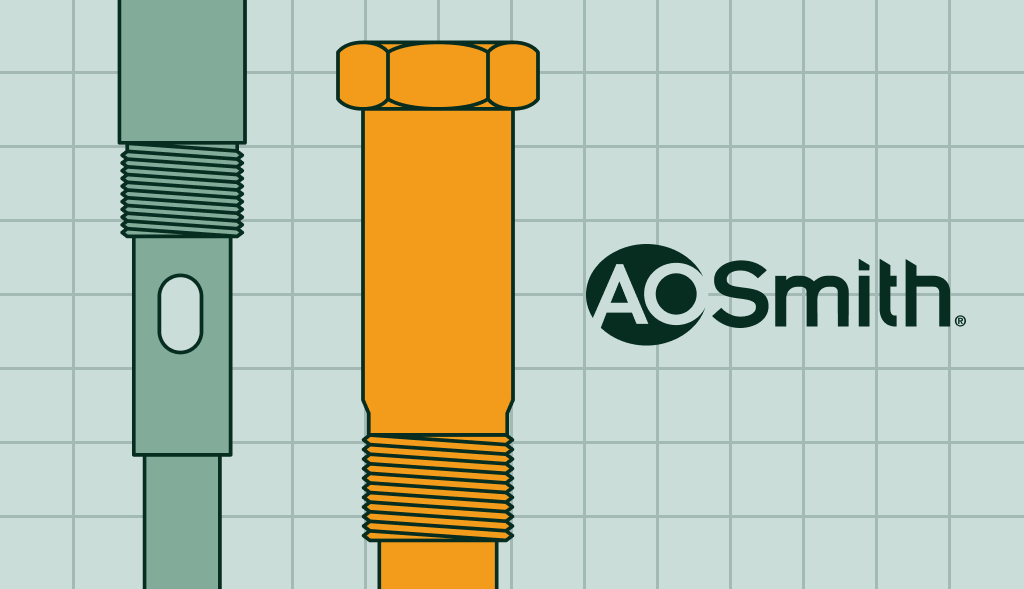A Deeper Dive into Sustainability: The Lifecycle Assessment of Corro-Protec’s Anode Rods

In the quest for environmental sustainability, every action counts. Corro-Protec’s powered anode rods present a groundbreaking solution to extend water heater life, drastically reducing the environmental footprint associated with water heating. This article examines the multifaceted environmental benefits of adopting Corro-Protec’s technology, from reducing greenhouse gas emissions to promoting energy efficiency and resource conservation.
Extending Water Heater Life: A Leap Towards Sustainability
The typical lifecycle of water heaters is often cut short by corrosion and limescale buildup. Corro-Protec’s powered anode rods, with their advanced titanium composition and MMO coating, offer a permanent solution to these issues. By significantly extending the lifespan of water heaters, these rods reduce the demand for manufacturing new units, thereby conserving raw materials and minimizing waste.
Impact on Greenhouse Gas Emissions
Corro-Protec’s anode rods not only prevent corrosion but also play a crucial role in reducing greenhouse gas emissions. The extended lifespan of water heaters means fewer units are produced and disposed of, leading to a substantial decrease in emissions from manufacturing processes. Furthermore, by preventing limescale buildup, these anode rods ensure water heaters operate efficiently, reducing energy consumption and associated emissions.
Energy Efficiency: The Dual Benefit
Energy efficiency is at the heart of Corro-Protec’s design. Water heaters free from limescale operate more efficiently, using less energy to heat water to the desired temperature. This not only lowers utility bills for consumers but also significantly cuts down on the energy consumption of homes, contributing to a reduction in the overall carbon footprint.
The Ripple Effect of Sustainable Practices
Adopting Corro-Protec anode rods has a ripple effect on environmental sustainability. By promoting the longevity and efficiency of water heaters, these rods help households and businesses align with global sustainability goals, such as reducing energy consumption and minimizing waste. This alignment demonstrates a commitment to not just individual savings but also to broader environmental stewardship.
Measurable Impact: Corro-Protec’s Contribution to CO2 Reduction
One of the most striking indicators of Corro-Protec’s commitment to environmental sustainability is its quantifiable impact on reducing carbon emissions. In 2023 alone, the implementation of Corro-Protec powered anode rods in residential and commercial water heaters contributed to saving over 1,500 tons of CO2 equivalents. This achievement not only highlights the effectiveness of Corro-Protec’s technology in promoting energy efficiency but also underscores its role in the global effort to combat climate change. Through innovative solutions that extend the life of water heaters and reduce energy consumption, Corro-Protec is making a substantial difference in reducing greenhouse gas emissions, further cementing its position as a leader in sustainable water heating solutions.
Future-Oriented Solutions for Environmental Challenges
Corro-Protec continues to innovate, seeking ways to further enhance the sustainability of their products. From optimizing manufacturing processes to exploring recyclable materials, Corro-Protec is dedicated to reducing its environmental impact and supporting the global transition towards sustainable energy solutions.
Conclusion
The adoption of Corro-Protec powered anode rods represents a significant step forward in the sustainable management of water heating systems. By extending the life of water heaters, reducing energy consumption, and decreasing greenhouse gas emissions, Corro-Protec offers a practical and impactful solution for homeowners and the environment alike. As we move towards a more sustainable future, technologies like Corro-Protec’s powered anode rods play a pivotal role in shaping a greener, more efficient world.
Blog
A.O. Smith* Water Heater Anode Rod: Location and Replacement Guide
The anode rod protects your A.O. Smith water heater from corrosion. Typically found on top under a plastic cap, it can be removed with a […]
Why Is My Hot Water Tank’s Overflow Pipe Leaking ?
Noticing water dripping from your hot water tank’s overflow pipe can be concerning. This pipe, known as the temperature and pressure relief (T&P) valve, is […]

